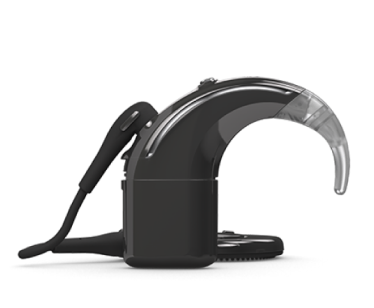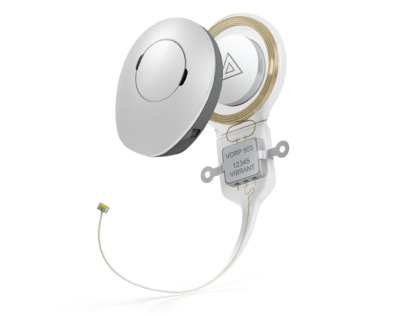Cochlear Implants
While most commonly associated with people who are profoundly deaf, these devices can also benefit people with severe hearing loss. We’ve tested all the options and curated our top picks – speak to your hearing aid specialist to learn more.


What is a Cochlear Implant?
A cochlear implant is a medical device designed to help you if you have severe to profound hearing loss. It consists of two parts: an internal component that is surgically implanted into the cochlea (the hollow, spiral-shaped bone in your inner ear), and an external component that sits behind the ear. The internal component has electrodes that are placed directly onto the auditory nerve, while the external component has a microphone that detects sound and converts it into electrical signals.
How Does a Cochlear Implant Work?
When a sound is detected by the microphone, it is transmitted to the internal component via a processor. The processor then sends electrical signals to the electrodes, which stimulate the auditory nerve. This causes the brain to perceive sound. Unlike traditional hearing aids, which amplify sounds, cochlear implants bypass damaged parts of the ear and directly stimulate the auditory nerve.
Who is Suitable for a Cochlear Implant?
A cochlear implant is a medical device designed to help you if you have severe to profound hearing loss. It consists of two parts: an internal component that is surgically implanted into the cochlea (the hollow, spiral-shaped bone in your inner ear), and an external component that sits behind the ear. The internal component has electrodes that are placed directly onto the auditory nerve, while the external component has a microphone that detects sound and converts it into electrical signals.
Benefits of Cochlear Implants vs Traditional Hearing Aids
There are several benefits of cochlear implants that differentiate them from traditional hearing aids. Cochlear implants can provide better sound quality, particularly for individuals with severe to profound hearing loss. They can also improve speech recognition in noisy environments and improve communication ability in quiet environments. Additionally, cochlear implants are typically more durable, lasting longer than traditional hearing aids.
The Cochlear Implant Process & Life With Implants
The first step in the cochlear implant process is a thorough evaluation. This will assess the individual’s hearing ability, overall health, and any underlying medical conditions that could affect the implantation surgery. Once the individual is cleared for surgery, the cochlear implant will be placed into their inner ear while they are under general anesthesia. After a two- to three-week healing period, the implant will be activated, and the individual can begin the rehabilitation process.
Life with a cochlear implant might come with some adjustments. For example, you will need to get used to new sounds. Regular maintenance and follow-up appointments with a professional audiologist are necessary to ensure the cochlear implant is working correctly, as well as to make any necessary adjustments or programming changes. Some adjustments might need to be made for the individual’s specific hearing ability, such as programming adjustments or the addition of external accessories. Overall, cochlear implants can significantly improve your quality of life.
At NYC Hearing Associates, our team of experienced professionals is dedicated to providing the best possible care and services for individuals with hearing loss. We offer thorough evaluations, cochlear implant surgeries, and comprehensive rehabilitation services. Our audiologists will work with you to help you get the most out of your cochlear implant and ensure that it is programmed to meet your specific needs.
To learn more about our services or to schedule a consultation, please contact us by filling out a new patient form. We look forward to helping you improve your quality of life with cochlear implants fitted by professionals you can trust.
